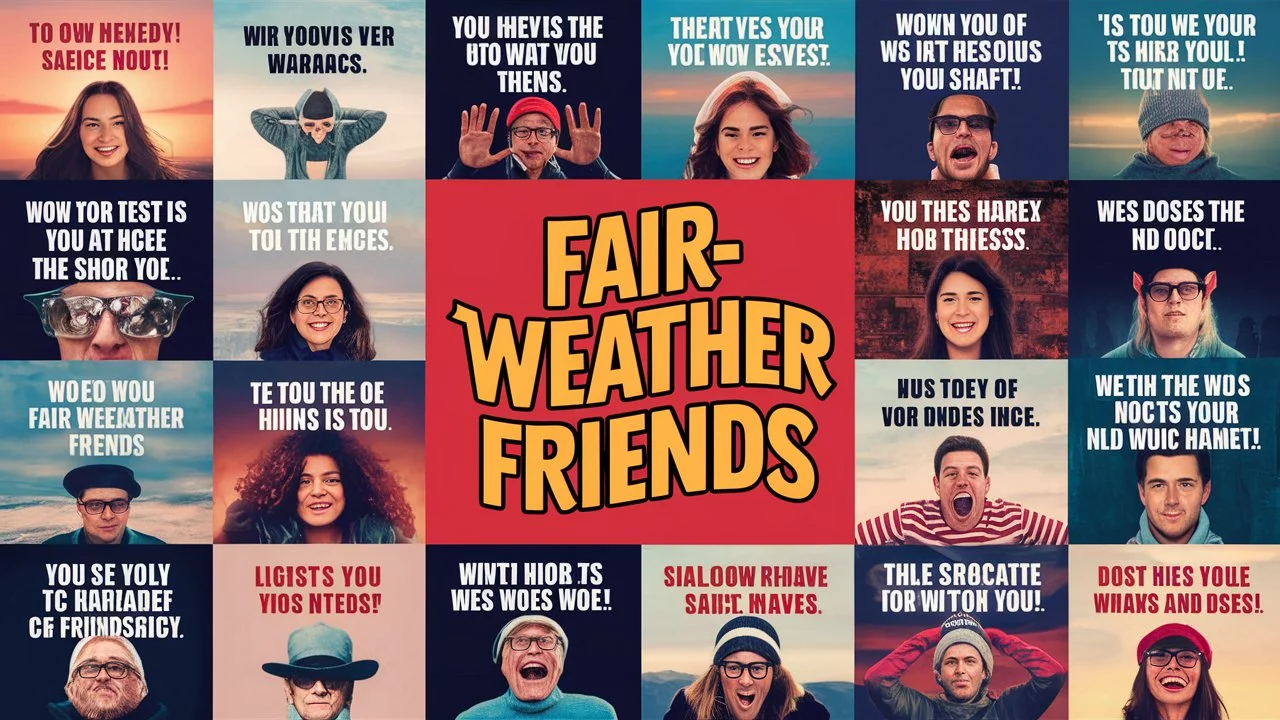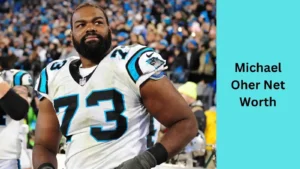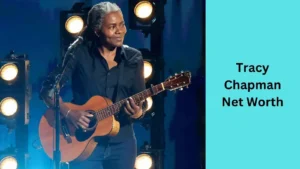Dealing with fake friends can be frustrating, especially when you’ve put in the effort to maintain a genuine friendship. Sometimes, a clever roast can help you express your feelings and stand your ground.
In this article, we’ll explore 26witty and sharp roasts for fake friends that can help you address insincerity with a dose of humor.
1. “You’re like a cloud. When you disappear, it’s a beautiful day.”
This roast uses a light-hearted comparison to emphasize that your life improves when the fake friend is not around, subtly highlighting their negativity.
Example:
Person A: Why haven’t you been around?
Person B: You’re like a cloud. When you disappear, it’s a beautiful day.
2. “If I wanted to hear from someone fake, I’d just talk to my TV.”
This clever roast compares the friend’s insincerity to the artificial nature of television, pointing out the lack of genuine communication.
Example:
Person A: You never listen to me!
Person B: If I wanted to hear from someone fake, I’d just talk to my TV.
3. “Your ‘friendship’ is like a screen door on a submarine—completely pointless.”
This roast uses a humorous analogy to express how the friend’s presence is ineffective and unnecessary.
Example:
Person A: Why do you keep coming around?
Person B: Your ‘friendship’ is like a screen door on a submarine—completely pointless.
4. “I’d call you a backstabber, but that implies you actually have a spine.”
This roast humorously critiques the friend’s lack of integrity, suggesting that they don’t even have the qualities of a real backstabber.
Example:
Person A: I don’t know what you’re talking about!
Person B: I’d call you a backstabber, but that implies you actually have a spine.
5. “Your loyalty is like Wi-Fi—weak and unreliable.”
This roast uses a tech analogy to describe the friend’s lack of dependable support, highlighting their unreliability in a modern context.
Example:
Person A: I thought you were my friend!
Person B: Your loyalty is like Wi-Fi—weak and unreliable.
6. “If being fake was an Olympic sport, you’d have a gold medal.”
This roast playfully exaggerates the friend’s fakeness, comparing it to an impressive achievement in a competitive setting.
Example:
Person A: Why are you acting this way?
Person B: If being fake was an Olympic sport, you’d have a gold medal.
7. “You could win an award for the best performance in ‘Not Being a Real Friend’.”
This roast humorously suggests that the friend excels in the role of not being a genuine friend, adding a touch of sarcasm.
Example:
Person A: Do you even care?
Person B: You could win an award for the best performance in ‘Not Being a Real Friend.’
8. “Your friendship is like a limited edition—rarely genuine and not worth much.”
This roast uses the concept of limited editions to mock the friend’s insincerity, suggesting their value is minimal.
Example:
Person A: We haven’t talked in ages!
Person B: Your friendship is like a limited edition—rarely genuine and not worth much.
9. “You’re the reason people say ‘fake it till you make it.’”
This roast uses a common saying to critique the friend’s fake behavior, implying they embody the phrase’s negative connotation.
Example:
Person A: Why are you so phony?
Person B: You’re the reason people say ‘fake it till you make it.’
10. “If honesty was a currency, you’d be bankrupt.”
This roast emphasizes the friend’s lack of honesty by comparing it to financial insolvency, highlighting their deficiency in a dramatic way.
Example:
Person A: You never tell the truth!
Person B: If honesty was a currency, you’d be bankrupt.
11. “Your presence is like a broken pencil—pointless.”
This roast uses a simple analogy to express how the friend’s presence adds no value, suggesting they are unimportant.
Example:
Person A: Why are you here?
Person B: Your presence is like a broken pencil—pointless.
12. “You’re like a book with a missing chapter—there’s just something important that’s not there.”
This roast compares the friend to an incomplete book, implying that something crucial is missing in their character or friendship.
Example:
Person A: Why do you always disappear?
Person B: You’re like a book with a missing chapter—there’s just something important that’s not there.
13. “You’re a human version of a participation trophy—insignificant and undeserved.”
This roast uses a comparison to participation trophies to highlight the friend’s lack of meaningful contribution or value.
Example:
Person A: Why should I care?
Person B: You’re a human version of a participation trophy—insignificant and undeserved.
14. “Your ‘friendship’ is like a social media filter—just a facade.”
This roast compares the friend’s behavior to a social media filter, suggesting that it’s all an artificial front.
Example:
Person A: Why are you so fake?
Person B: Your ‘friendship’ is like a social media filter—just a facade.
15. “I’d rather have a conversation with a wall; at least it’s more reliable.”
This roast uses a wall as a humorous comparison to the friend, suggesting that even an inanimate object is more dependable.
Example:
Person A: Why don’t you ever talk to me?
Person B: I’d rather have a conversation with a wall; at least it’s more reliable.
16. “If you were a book, your title would be ‘How to Be a Fake Friend.’”
This roast humorously implies that the friend’s entire identity revolves around being insincere, using a book title analogy.
Example:
Person A: What’s your problem?
Person B: If you were a book, your title would be ‘How to Be a Fake Friend.’
17. “You’re the kind of friend who makes you appreciate being alone.”
This roast highlights the positive aspect of solitude in contrast to the negative impact of the fake friend’s presence.
Example:
Person A: Why don’t you hang out more?
Person B: You’re the kind of friend who makes you appreciate being alone.
18. “Your idea of loyalty is like a mirage—never quite real.”
This roast uses the concept of a mirage to suggest that the friend’s loyalty is an illusion, not genuine.
Example:
Person A: Where were you when I needed you?
Person B: Your idea of loyalty is like a mirage—never quite real.
19. “You’re like a ghost—always around when you’re not needed and never there when you are.”
This roast uses a ghost analogy to describe the friend’s inconsistent and unreliable presence.
Example:
Person A: Why are you always absent?
Person B: You’re like a ghost—always around when you’re not needed and never there when you are.
20. “If fake friends were a class, you’d be the valedictorian.”
This roast humorously implies that the friend excels at being insincere, likening their expertise to that of a top student.
Example:
Person A: Why do you act this way?
Person B: If fake friends were a class, you’d be the valedictorian.
21. “Your loyalty is as reliable as a weather forecast—always changing and often wrong.”
This roast compares the friend’s reliability to the often inaccurate nature of weather forecasts, highlighting their inconsistency.
Example:
Person A: Can I count on you?
Person B: Your loyalty is as reliable as a weather forecast—always changing and often wrong.
22. “You’re like a limited edition toy—rarely seen and not worth much.”
This roast uses a toy analogy to mock the friend’s rarity and perceived lack of value, suggesting they are not genuinely significant.
Example:
Person A: Why don’t you show up more?
Person B: You’re like a limited edition toy—rarely seen and not worth much.
23. “Your friendship is like an expired coupon—no longer valuable and easily forgotten.”
This roast compares the friend’s value to that of an expired coupon, indicating that their friendship is no longer useful or relevant.
Example:
Person A: Why do you keep disappearing?
Person B: Your friendship is like an expired coupon—no longer valuable and easily forgotten.
24. “If being two-faced was a talent show, you’d be the grand prize winner.”
This roast exaggerates the friend’s duplicity, suggesting they excel at being deceitful and insincere.
Example:
Person A: Why are you so dishonest?
Person B: If being two-faced was a talent show, you’d be the grand prize winner.
25. “You’re like a fire drill—only around when it’s convenient and never when needed.”
This roast uses a fire drill analogy to describe the friend’s occasional usefulness and frequent absence.
Example:
Person A: Why are you always missing?
Person B: You’re like a fire drill—only around when it’s convenient and never when needed.
26. “Your promises are like magic tricks—never what they seem and always disappointing.”
This roast uses a magic trick analogy to critique the friend’s unreliable promises, suggesting they are deceptive and unsatisfactory.
Example:
Person A: Can I trust you?
Person B: Your promises are like magic tricks—never what they seem and always disappointing.
27. “You’re a master at pretending, but unfortunately, the act is getting old.”
This roast critiques the friend’s ability to pretend, suggesting that their insincerity has become tiresome and predictable.
Example:
Person A: Why do you keep faking it?
Person B: You’re a master at pretending, but unfortunately, the act is getting old.
28. “Your friendship is like a smartphone with no signal—useless when you need it most.”
This roast compares the friend’s value to a smartphone without a signal, indicating their lack of support when it’s truly needed.
Example:
Person A: Why don’t you ever help?
Person B: Your friendship is like a smartphone with no signal—useless when you need it most.
29. “If insincerity was an art form, you’d be a masterpiece.”
This roast praises the friend’s skill in being insincere, likening it to a work of art to emphasize their proficiency.
Example:
Person A: Why are you so fake?
Person B: If insincerity was an art form, you’d be a masterpiece.
30. “You’re the type of friend who’d sell you out for a free meal.”
This roast humorously suggests that the friend is so fake that they’d betray their values for something as trivial as a free meal.
Example:
Person A: Why do you always act this way?
Person B: You’re the type of friend who’d sell you out for a free meal.

James Wilson is the creative mind behind ReplySwift.com. With a talent for crafting quick and clever responses, James helps others communicate more effectively. On ReplySwift.com, he shares tips, templates, and insights to make every reply impactful and engaging. Join James and elevate your response game to new heights.












